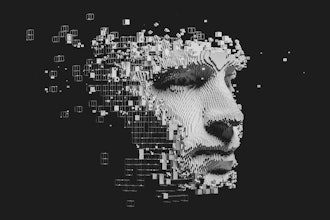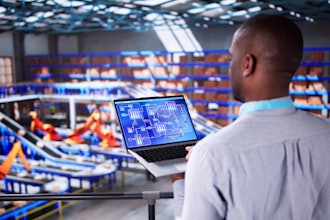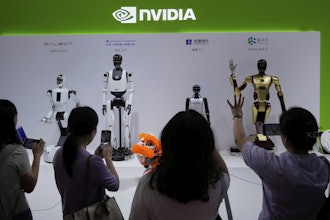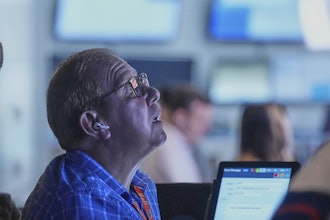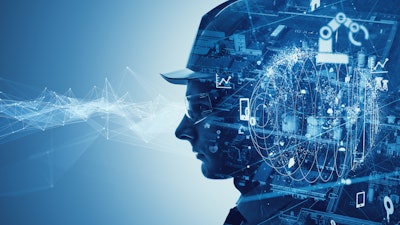
Editor's Note: The views expressed in this column are solely those of the author.
The media hype today is all about how far artificial intelligence can be developed for everything from predictive maintenance and writing its own editorials to generating its own code and finding a cure for heart disease. From my perspective, introducing new technologies is always viewed as magical—the human element is a secondary consideration. But, there are two big questions:
- Which is more important: workers or technology?
- Should a company adopt technology to fit its people and processes or change the people and processes to fit the technology?
I think Toyota's system answers the first question. They say, "We build people before we build cars." Toyota believes its success begins and ends with its employees. The company wants "a system that adapts to the way we work, not to have to adapt to the way an existing piece of software works."
When answering the second question, one tends to believe that if you can write the code for a software program, you can solve the problem. For example, predictive analytics in maintenance is about taking historical data from maintenance logs to predict whether you'll need to fix something based on what fixed the problem in the past. This information is only good if the workers are sufficiently trained and performing preventative maintenance.
In my experience in production line automation, training maintenance people was rarely adequate. Corporations always seem to come up with the capital budget to buy "space age" machinery, but then they skimp on training.
If the worker cannot do the job properly, an AI-generated predictive maintenance program is not the solution. If you don't invest time training the servicemen first, predictive maintenance is useless. The software program is only as good as those who do the work.
The same problem applies to predictive quality, scrap reduction, and demand and inventory forecasting. Technology will probably not work if you emphasize technology over people or try to change people to fit the technology.
My point is contrary to what you hear from AI companies; technology is not a magic bullet that will solve all the problems in the plant. Technology is simply a tool used by people who must do the work. If the workers are not motivated, committed, and trained, it doesn't matter how good the tools or the technology are.
Productivity
Even though artificial intelligence has seized the technology industry and is the recipient of huge investments, there are serious doubts about its productivity. Jeff Ferry of the Coalition for a Prosperous America says, "The AI boom is very likely to be a huge productivity disappointment."
In comparison, Ferry says, "the introduction of the Internet did not improve U.S. productivity, in terms of output per hour worked. It did not improve U.S. productivity, which was 1.5% between 2007 and 2024—far below the 2.7% post-World War II economic boom."
Ferry suggests this process is likely to continue with AI. He says, "The technology chain from microprocessor and software to personal computing, the Internet, the cloud, and now AI has a consistent structural effect on the U.S. economy. Productivity gains from these technologies will be offset by the stagnant productivity of U.S. workers because they will be forced into lower-revenue occupations like retail and food service. When outsourcing accelerated in the early 2000s, the revenue and benefits went to companies and workers in Asia, not the U.S.
The Employment Question
A Goldman Sachs A.I Study estimates that "46% of administrative positions, 44% of legal positions, and 37% of engineering jobs could be replaced by AI." The study said 300 million global full-time jobs, including two-thirds of the jobs in the U.S. and Europe, are at risk of being replaced by generative artificial intelligence.
A recent article in Smithsonian Magazine said "47% of all U.S. jobs will be automated in a decade or two."
If these projections are true, the loss of jobs could jeopardize millions of workers, hurt economic growth, and create political problems in Western countries.
The Potential Problems of AI
The media are long on describing the advances in artificial intelligence but short on describing the potential disadvantages. Here are some potential AI problems that will affect consumers, users and workers:
- According to the World Economic Forum's Global Risk Report 2024, "AI is likely to push more people towards crime, militarization or radicalization and contribute to the globalization of organized crime." The report concludes, "over the longer-term, technological advances including Generative AI, will enable non-state and state actors to conceptualize and develop new tools of disruption and conflict from malware to biological weapons."
- AI's language, audio, and image-generating abilities will be a boon to online criminals and conspiracy promoters. The potential for AI-generated deception, hoaxes, scams, and frauds is formidable.
- The veracity of phishing schemes, password hacking, fake websites, voice cloning, and phone scams could reach new levels of sophistication.
- Dictators and autocratic governments will have unprecedented surveillance and control over their populations.
- Artificial intelligence has the potential to create black boxes where the inner workings are unexplainable and uncontrollable. The most powerful AI systems contain billions of parameters and the reasons behind software decisions are often opaque. If we don't understand it, how can we trust it?
- According to Scientific American, AI systems have caused or contributed to serious harm to humans. Algorithms used in the criminal justice system can unfairly recommend denying parole. AI-guided military drones can kill without any moral reasoning.
Are we simply victims lying in wait for the potential digital scams, frauds, and hoaxes that might be an obligatory part of the AI revolution?
Will the benefits of AI programs outweigh the social and economic costs? Regardless of the perceived problems, the investment in AI is accelerating. We may have inadvertently committed ourselves to riding a tiger, and once on the tiger's back, we may not be able to dismount.
The big question is, what will happen to the workers, consumers, and ordinary citizens? I take the contrary view that a bottom-up (rather than a top-down) strategy that begins with the workers is needed. The solution is to focus on the people first rather than the technology, but it isn't happening.
AI enthusiasts suggest that accurate datasets are the most important factor in achieving business goals and efficiency. This focus ignores positive human traits like versatility, talent, and intuition that, in the past, have led to innovations. It is unrealistic and unwise to remove the human element from the equation.
Like all other technology introductions, it appears that we are going to plunge ahead with AI and sort the problems out later. Perhaps the most likely outcome will be a murky mix of good and bad, especially if we implement AI without guardrails and just hope for the best.
The Sentient Machine
If you evaluate all of the speculative articles on artificial intelligence from the last couple of decades, you could conclude that we are on the verge of building a C3PO-like robot that is self-aware and can think as well as a human. The artificial intelligence theorists seem to be counting on the fact that, at some point in the next 20 years, a microprocessor will be invented that can reach a "singularity point" where it becomes conscious and self-aware.
However, contrary to popular belief, very little progress has been made in developing a robot brain that would approximate human intelligence and the capabilities of the brain—and it looks like we are a long way from doing it.
We are a technologically-rich civilization addicted to software solutions and obtuse to the implications our decisions will have on people. It will be interesting to see if the costs exceed the gains.
Michael Collins is the author of Dismantling the American Dream. He can be reached at mpcmgt.net.











